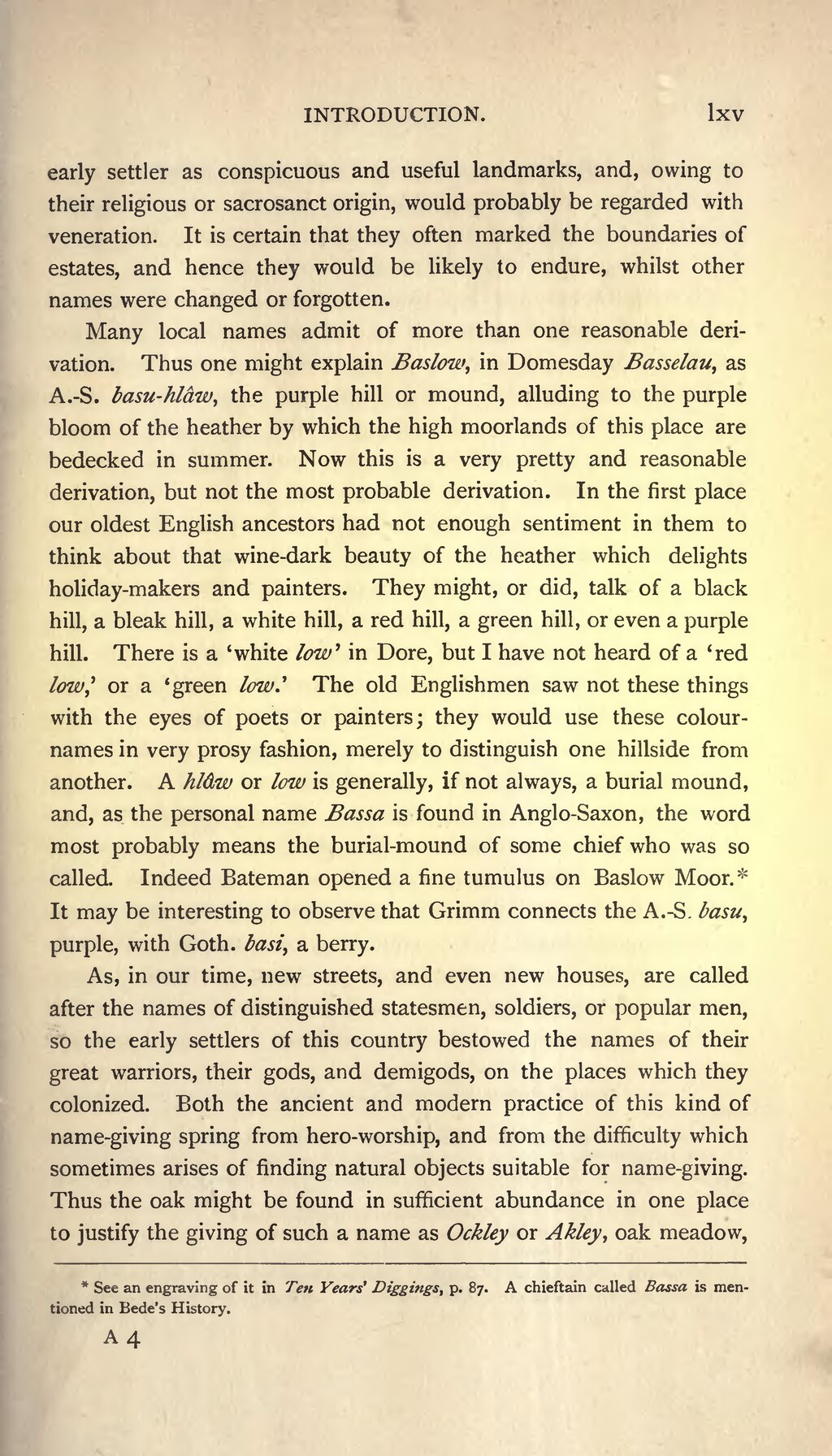early settler as conspicuous and useful landmarks, and, owing to their religious or sacrosanct origin, would probably be regarded with veneration. It is certain that they often marked the boundaries of estates, and hence they would be likely to endure, whilst other names were changed or forgotten.
Many local names admit of more than one reasonable derivation. Thus one might explain Baslow, in Domesday Basslau, as A.-S. basu-hlâw, the purple hill or mound, alluding to the purple bloom of the heather by which the high moorlands of this place are bedecked in summer. Now this is a very pretty and reasonable derivation, but not the most probable derivation. In the first place our oldest English ancestors had not enough sentiment in them to think about that wine-dark beauty of the heather which delights holiday-makers and painters. They might, or did, talk of a black hill, a bleak hill, a white hill, a red hill, a green hill, or even a purple hill. There is a 'white low' on Dore, but I have not heard of a 'red low,' or a 'green low.' The old Englishmen saw not these things with the eyes of poets or painters; they would use these colour-names in very prosy fashion, merely to distinguish one hillside from another. A hlâw or low is generally, if not always, a burial mound, and, as the personal name Bassa is found in Anglo-Saxon, the word most probably means the burial-mound of some chief who was so called. Indeed Bateman opened a fine tumulus on Balsow Moor.[1] It may be interesting to observe that Grimm connects the A.-S. basu, purple with Goth. basi, a berry.
As, in our time, new streets, and even new houses, are called after the names of distinguished statesmen, soldiers, or popular men, so the early settlers of this country bestowed the names of their great warriors, their gods, and demigods, on the places which they colonized. Both the ancient and modern practice of this kind of name-giving spring from hero-worship, and from the difficulty which sometimes arises of finding natural objects suitable for name-giving. Thus the oak might be found in sufficient abundance in one place to justify the giving of such a name as Ockley or Akley, oak meadow,
- ↑ See an engraving of it in Ten Years' Diggings, p. 87. A chieftain called Bassa is mentioned in Bede's History.
